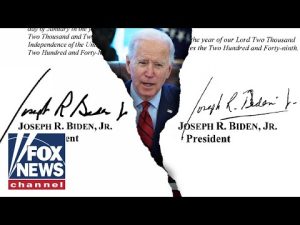The recent developments involving the Department of Homeland Security’s Operation Patriot 2.0 present a stark reminder of the ongoing tug-of-war over immigration enforcement in the United States. Operation Patriot 2.0, an initiative by ICE agents, seeks to target some of the most dangerous illegal aliens, such as drug traffickers and child predators. This operation isn’t the first of its kind; a similar crackdown in May led to the arrest of 1,400 illegal migrants, of which 790 had significant criminal histories, and 277 were ordered to leave the country by judges. And yet, despite these efforts, some local governments, notably in places like Massachusetts, seem more motivated to provide a warm welcome rather than assist in federal law enforcement efforts.
The operation is back in full swing in Massachusetts, a state that frustratingly does not fully cooperate with civil ICE detainers. This lack of cooperation means that even when local law enforcement apprehends individuals with violent records, they often can’t hold them until ICE can step in. It’s like inviting the wolf in for lunch and then being surprised when he goes for seconds. This situation essentially hands these criminals a get-out-of-jail-free card, a slap in the face to those invested in public safety.
Boston’s Mayor, Michelle Wu, appears to take a politically advantageous stance by opposing the operation. One could argue she’s vying for votes, painting herself as a stalwart defender against federal overreach. Yet, the legal backdrop of her resistance is interesting. A ruling back in 2017 by the state Supreme Judicial Court ties the hands of local enforcement, leaving the legislative body to decide whether to cooperate with ICE. It’s quite a scene, where political theatrics triumph over common sense, and local leaders seem more concerned with resisting perceived federal intrusion than ensuring their communities’ safety.
Further north, Representative Ayanna Pressley’s recent financial disclosure raises some eyebrows. As she rails against the country’s supposed “millionaire’s club,” it turns out she has amassed significant assets herself, including lucrative rental properties. Perhaps this newfound wealth will prompt a reevaluation of her position on fiscal policies, like a millionaire’s tax. After all, nothing instills fiscal conservatism quite like realizing you could be the one footing the taxman’s bill. For those who cherish irony, Pressley’s predicament is a gift that keeps on giving.
In the midst of all these political soap operas, it’s essential for citizens to ask tough questions about leadership and accountability. Hopefully, reality will prompt the necessary wake-up call for these leaders. Until then, the rest of the nation watches and wonders when safeguarding the public will truly become a bipartisan endeavor. Whether it’s protecting borders from criminal elements or understanding the economic impacts of burgeoning wealth, these issues aren’t going away, and neither should the voices that demand action.







